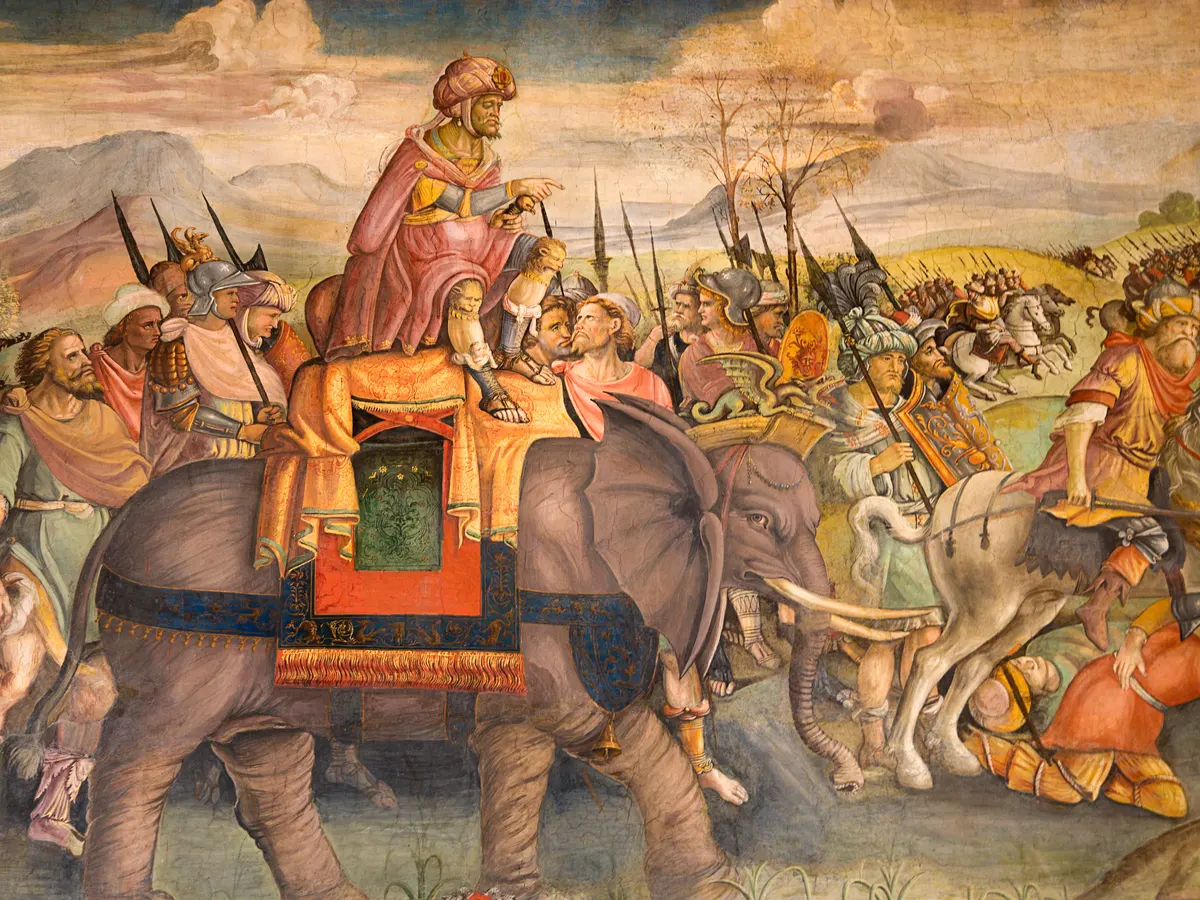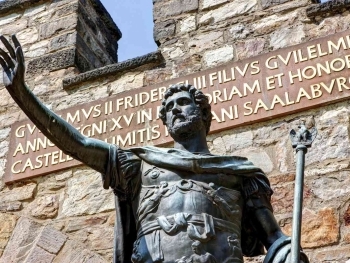Hannibal Barca, one of the greatest military strategists in history, is known for his daring and unconventional tactics. One of his most famous feats was his crossing of the Alps with a large army and a contingent of elephants. In this article, we'll explore the details of Hannibal's march and the impact it had on the ancient world.
Hannibal was a general of the Carthaginian army, and during the Second Punic War, he marched his army from Spain to Italy to engage the Roman army. The journey involved crossing the Pyrenees and then the Alps, which was a formidable task in itself. But Hannibal also had to transport a contingent of war elephants, which had never been done before.
The elephants were a vital part of Hannibal's army. They were used to break enemy lines and create chaos on the battlefield. Hannibal knew that the Romans had never encountered elephants before, and he hoped that their appearance would strike fear into the enemy.
The crossing of the Alps was a grueling task. The army faced treacherous terrain, extreme weather conditions, and hostile tribes along the way. The elephants were particularly vulnerable, and many of them died due to the harsh conditions.
Despite the challenges, Hannibal and his army made it across the Alps and into Italy. The Romans were caught off guard, and Hannibal won a series of victories against them. His use of elephants in battle proved to be effective, and the Romans were unable to counter this new threat.
The impact of Hannibal's march was significant. It proved that the seemingly impossible was possible, and it inspired future military leaders to think outside the box. The march also marked a turning point in the Second Punic War and cemented Hannibal's legacy as a brilliant military strategist.
Hannibal's march across the Alps with his army and elephants was a remarkable achievement that changed the course of history. It showcased Hannibal's ingenuity and determination and paved the way for future military leaders to push the boundaries of what was possible. The impact of Hannibal's march is still felt today, and it serves as a testament to the power of innovation and creativity in the face of adversity.




